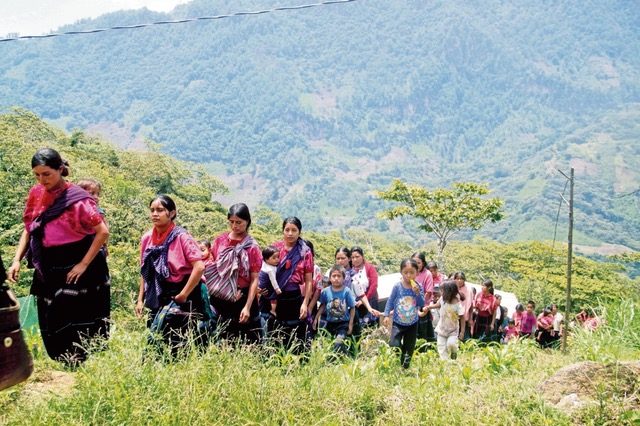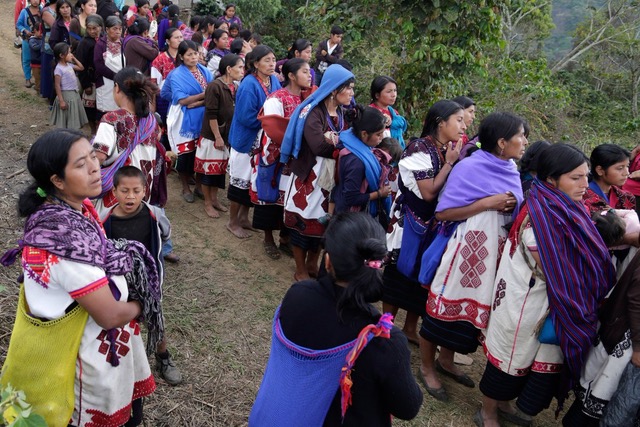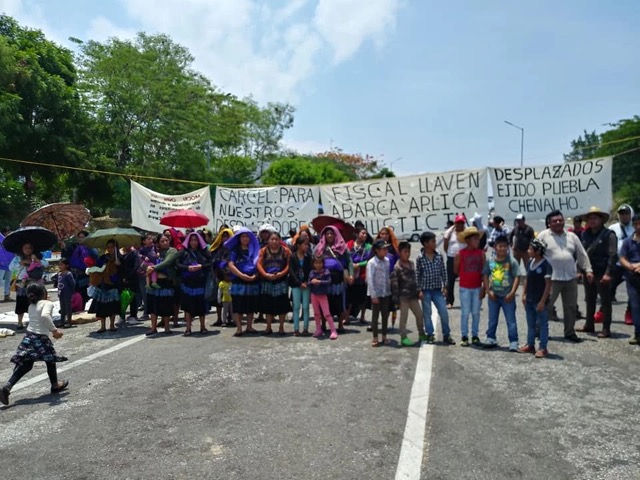
By: Jessica Xantomila
Next week, members of the Inter-American Commission on Human Rights (IACHR), led by the rapporteur on the rights of indigenous peoples, Esmeralda Arosemena de Troitiño, will visit Chiapas, for the purpose of evaluating the precautionary measures dictated in 2018 and 2021 to guarantee the security of the residents in the communities of Chalchihuitán, Chenalhó and Aldama municipalities.
The Fray Bartolomé de las Casas Human Rights Center indicated that the visit, from July 11 to 15, will take place “in the midst of a proliferation of armed groups and the negligence of the Mexican government regarding compliance with the precautionary measures,” which were granted due to the fact that, because of land conflicts, indigenous peoples have been attacked and displaced.
Last December 15, after a follow-up report, the IACHR expressed its willingness to make an on-site visit to Mexico, with the prior consent of the State, in order to verify the situation of the beneficiaries, with whom it will meet.

According to the information provided by the human rights center, the experts will arrive on July 11. On July 12 they will be in the municipality of Aldama and on the 13th in Chalchihuitán. That same day they will meet with local authorities.
The provisions were issued in 2018 and 2021
On July 14, they will be in Mexico City to hold meetings with federal officials. The IACHR granted precautionary measures in February 2018 through Resolution 15/2018 for 10 communities in Chalchihuitán and Chenalhó, at the request of Frayba, in order to guarantee the rights of indigenous Tsotsil displaced from the area.
The applicants denounced that there was a situation of violence based on a conflict over territorial limits between both towns, with more than 45 years. This has generated conflict between the communities in the form of robberies, destruction of crops, land invasions and even murders, as well as an increased military presence.

Photo: Chiapas Support Committee.
Meanwhile, in April 2021, the IACHR issued resolution 35/2021, by which it granted precautionary measures in favor of Tsotsil families from 12 communities of Aldama, because of the situation of risk due to aggressions, harassment, and threats resulting from the presence of an “armed group” from the Manuel Utrilla ejido, in Chenalhó, as well as because of an “armed group with a paramilitary nature” that would have participated in the displacement that occurred in 2017 in Chalchihuitán.
The situation would also have as a background a territorial dispute between adjoining ejidos. As of September 2020, there was a record of 3, 499 displaced persons from 10 communities.
In its follow-up report for both cases, dated December 2021, although the IACHR valued the protection, security and humanitarian aid measures taken by the State, it decided that they should be reinforced considering that the risk factors still exist.
Originally Published in Spanish by La Jornada, Saturday, July 9, 2022, https://www.jornada.com.mx/2022/07/09/estados/022n1est. English interpretation by the Chiapas Support Committee reposted with permission.
